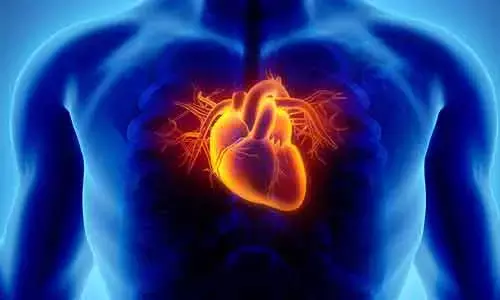- Home
- Medical news & Guidelines
- Anesthesiology
- Cardiology and CTVS
- Critical Care
- Dentistry
- Dermatology
- Diabetes and Endocrinology
- ENT
- Gastroenterology
- Medicine
- Nephrology
- Neurology
- Obstretics-Gynaecology
- Oncology
- Ophthalmology
- Orthopaedics
- Pediatrics-Neonatology
- Psychiatry
- Pulmonology
- Radiology
- Surgery
- Urology
- Laboratory Medicine
- Diet
- Nursing
- Paramedical
- Physiotherapy
- Health news
- Fact Check
- Bone Health Fact Check
- Brain Health Fact Check
- Cancer Related Fact Check
- Child Care Fact Check
- Dental and oral health fact check
- Diabetes and metabolic health fact check
- Diet and Nutrition Fact Check
- Eye and ENT Care Fact Check
- Fitness fact check
- Gut health fact check
- Heart health fact check
- Kidney health fact check
- Medical education fact check
- Men's health fact check
- Respiratory fact check
- Skin and hair care fact check
- Vaccine and Immunization fact check
- Women's health fact check
- AYUSH
- State News
- Andaman and Nicobar Islands
- Andhra Pradesh
- Arunachal Pradesh
- Assam
- Bihar
- Chandigarh
- Chattisgarh
- Dadra and Nagar Haveli
- Daman and Diu
- Delhi
- Goa
- Gujarat
- Haryana
- Himachal Pradesh
- Jammu & Kashmir
- Jharkhand
- Karnataka
- Kerala
- Ladakh
- Lakshadweep
- Madhya Pradesh
- Maharashtra
- Manipur
- Meghalaya
- Mizoram
- Nagaland
- Odisha
- Puducherry
- Punjab
- Rajasthan
- Sikkim
- Tamil Nadu
- Telangana
- Tripura
- Uttar Pradesh
- Uttrakhand
- West Bengal
- Medical Education
- Industry
Colchicine significantly lowers CV events in chronic coronary disease: LoDoCo2 trial

Delhi: Once-daily use of 0.5 mg of colchicine significantly lowers the risk of cardiovascular events in patients with chronic coronary disease, show findings from the LoDoCo2 trial. Results were published in the New England Journal of Medicine and presented virtually in a Hot Line session of the European Society of Cardiology (ESC) Congress 2020.
Colchicine, originally derived from the bulb of the crocus plant, has been used since ancient times to treat inflammation. Now synthetically made, it is a generic medication taken to treat gout. The drug also inhibits several inflammatory pathways known to be important in atherosclerosis. The LoDoCo (Low Dose Colchicine) pilot trial suggested that colchicine 0.5 mg once daily was safe and effective for preventing cardiovascular events in patients with coronary artery disease.
Findings from a recent trial have shown antiinflammatory effects of colchicine to reduce the risk of cardiovascular events in myocardial infarction patients. But there is limited evidence of such risk reduction in patients with chronic coronary disease. Stefan M. Nidorf from GenesisCare Western Australia, and colleagues performed a randomized, controlled, double-blind trial in which 5522 patients with chronic coronary disease were assigned to receive 0.5 mg of colchicine once daily (n=2762) or matching placebo (n=.2760). They were followed for a median of 28.6 months.
The primary endpoint was a composite of cardiovascular death, spontaneous (nonprocedural) myocardial infarction, ischemic stroke, or ischemia-driven coronary revascularization. The key secondary endpoint was a composite of cardiovascular death, spontaneous myocardial infarction, or ischemic stroke.
Key findings of the study include:
- A primary end-point event occurred in 187 patients (6.8%) in the colchicine group and in 264 patients (9.6%) in the placebo group (incidence, 2.5 vs. 3.6 events per 100 person-years; hazard ratio, 0.69).
- A key secondary end-point event occurred in 115 patients (4.2%) in the colchicine group and in 157 patients (5.7%) in the placebo group (incidence, 1.5 vs. 2.1 events per 100 person-years; hazard ratio, 0.72).
- The incidence rates of spontaneous myocardial infarction or ischemia-driven coronary revascularization (composite endpoint), cardiovascular death or spontaneous myocardial infarction (composite end point), ischemia-driven coronary revascularization, and spontaneous myocardial infarction were also significantly lower with colchicine than with placebo.
- The incidence of death from noncardiovascular causes was higher in the colchicine group than in the placebo group (incidence, 0.7 vs. 0.5 events per 100 person-years; hazard ratio, 1.51).
"The results of our trial showed that among patients with chronic coronary disease, most of whom were already receiving proven secondary therapies, the occurrence of cardiovascular events deemed significantly lower with low dose colchicine compared to placebo," concluded the authors.
Dr. Nidorf said: "The trial confirmed that low-dose colchicine was tolerated over the long-term and significantly reduced the risk of the primary endpoint by almost one-third. The benefits were seen soon after initiating therapy, continued to accrue over time, and were observed patients already receiving other effective prevention therapies."
He noted that the magnitude of colchicine's effect on cardiovascular outcomes was consistent with that found in the CANTOS and COLCOT trials.4,5 Dr. Nidorf said: "The results of the LoDoCo2 trial establish colchicine as a potential new option for long-term prevention of cardiovascular events in patients with chronic coronary disease."
The study, "Colchicine in Patients with Chronic Coronary Disease," is published in the journal NEJM.
Dr Kamal Kant Kohli-MBBS, DTCD- a chest specialist with more than 30 years of practice and a flair for writing clinical articles, Dr Kamal Kant Kohli joined Medical Dialogues as a Chief Editor of Medical News. Besides writing articles, as an editor, he proofreads and verifies all the medical content published on Medical Dialogues including those coming from journals, studies,medical conferences,guidelines etc. Email: drkohli@medicaldialogues.in. Contact no. 011-43720751


